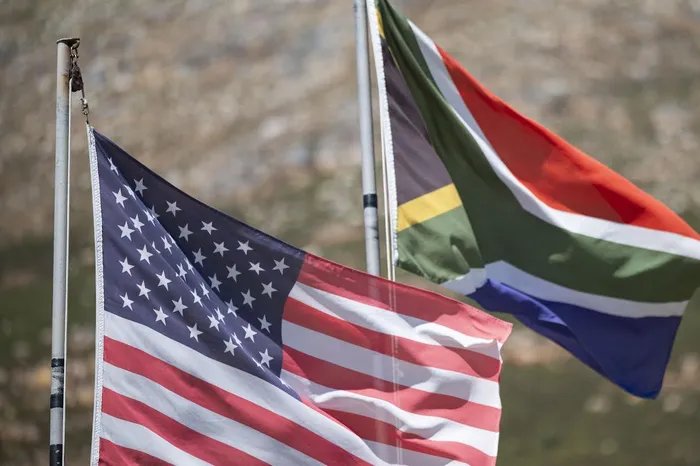Government intensifies trade negotiations with the US amid impending tariffs

The US is South Africa's third-largest bilateral trading partner after China and the European Union. South Africa's top exports to the US include cars, iron and steel products, and citrus fruits, among others.
Image: Armand Hough /Independent Newspapers
Minister in the Presidency, Khumbudzo Ntshavheni, said on Thursday that Cabinet has received an update on the Framework Deal with the United States amid growing concerns over a significant 30% tariff that is scheduled to come into effect at midnight.
The announcement follows a direct conversation between President Cyril Ramaphosa and US President Donald Trump aimed at bolstering South Africa’s negotiation efforts concerning trade agreements.
Ramaphosa also confirmed that he held a telephone discussion on bilateral trade matters with Trump on Wednesday morning.
According to Ramaphosa, they undertook to continue with further engagements recognizing the various trade negotiations the US was currently involved in, adding that respective trade negotiating teams will take forward more detailed discussions.
Trump imposed 30% tariff on a number of South African products being exported to the US, arguing that introducing tariffs will protect American businesses from foreign competition and also boost domestic manufacturing and jobs.
The US is South Africa's third-largest bilateral trading partner after China and the European Union. South Africa's top exports to the US include cars, iron and steel products, and citrus fruits, among others.
Meanwhile, Ntshavheni said the Cabinet reaffirmed the government’s commitment to establishing constructive and sustainable solutions through ongoing engagements with the US, which will include discussions at the highest presidential levels, in a bid to navigate the potential impact of these tariffs on South Africa’s economy.
As the government strives to grow the economy and safeguard employment, it is paving the way for strategic measures to augment its global supply chain integration.
This strategy will focus on expanding export markets across Asia, Europe, the Middle East, and Africa, ultimately enhancing South Africa’s economic resilience and capacity to tackle impending challenges.
"Specific to industries impacted by the tariff increase, the government is focusing on demand-side interventions in the impacted industries and targeted interventions to ensure industry stability and safeguardemployment," Ntshavheni said.
These initiatives include:
- Export Support Desk: Establishing a dedicated point of contact for affected companies to streamline assistance.
- Localisation Support Fund (LSF): Aiming to enable affected companies to contribute to national resilience.
- Export and Competitiveness Support Programme (ECSP): Offering a working capital facility and support for plant and equipment to address immediate industry needs.
- Collaboration with the Department of Employment Labour: Creating measures to mitigate potential job losses, utilising existing instruments within its entities.
- Block Exemption for Exporters: Following consultations with the Competition Commission, a draft Block Exemption will be published shortly, allowing for enhanced collaboration and coordination among competitors.
Ntshavheni said these proactive steps reflected the government’s understanding of the urgent need for stability in the face of global economic uncertainties and regulatory change.
She said the Cabinet's deliberations signified a determined approach towards not only shielding jobs but also fostering growth in competitive sectors.
BUSINESS REPORT